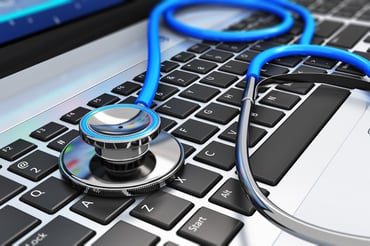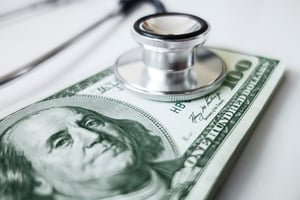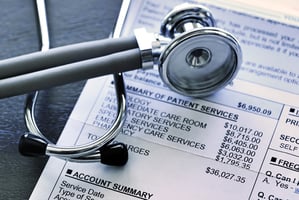In a busy practice, the day can feel like it’s running you instead of the other way around. When...


Imagine waking up every morning dreading the long hours and emotional toll of caring for others.
For nearly half of all physicians, this scenario is a harsh reality. Physician fatigue and emotional depletion have surged to critical levels, jeopardizing the well-being of healthcare professionals and compromising the quality of patient care. From relentless workloads to the constant pressure of making life-and-death decisions, doctors and healthcare workers face immense challenges that can lead to profound stress and disengagement.
As the healthcare landscape evolves, understanding the signs, causes, and effective strategies to combat provider stress is more important than ever. Let’s explore the different aspects of provider exhaustion, its impact on healthcare workers and patients, and practical prevention strategies.
Unlike general job stress, burnout impacts how physicians interact with their patients and perceive their roles. It’s not simply the result of long hours; it’s a cumulative response to high demands, constant decision-making, and limited support, leading to chronic fatigue and disengagement.
Burnout affects nearly half of all physicians, with higher rates in specialties like emergency medicine and primary care. Understanding the symptoms helps physicians and their colleagues identify early warning signs and take preventive actions.
The symptoms can be divided into three primary categories: emotional exhaustion, depersonalization, and a reduced sense of achievement.
Emotional Exhaustion: Burned-out physicians often feel depleted by the emotional demands of patient care. Symptoms may include persistent fatigue, irritability, and difficulty concentrating. Many doctors experience “compassion fatigue,” where they feel emotionally drained and unable to connect with patients.
Depersonalization: This symptom involves detachment or negative feelings toward patients, often as a defense mechanism to avoid emotional strain. Burned-out doctors may feel numb or indifferent, struggling to maintain empathy and a positive demeanor in their work. This depersonalization can erode the quality of patient interactions and ultimately impact the doctor-patient relationship.
Reduced Sense of Accomplishment: Physicians may doubt their abilities, feel ineffective, and believe they’re not making a meaningful impact in their roles. This sense of inefficacy can further exacerbate emotional exhaustion.
Don't Ignore the Warning Signs: Recognizing Physician BurnoutHealthcare professional overwhelm often begins subtly but can quickly escalate. Here are some signs to look for:
|
The causes of provider burnout are complex and often specific to the demanding nature of healthcare. High workloads, administrative burdens, and limited mental health support help create a strained working environment that can lead to provider distress.
Excessive work hours and high patient loads: Doctors often work long shifts to meet patient needs, and the constant pace of healthcare leaves little room for recovery. This unrelenting demand can drain a physician’s physical and emotional energy, making them more susceptible to burnout.
Administrative burdens: Documentation, insurance coding, and regulatory compliance require time-consuming administrative tasks that can detract from patient care. Many healthcare workers spend as much time on paperwork as they do with patients, leading to frustration and resentment.
Lack of support and resources: In many healthcare settings, resources are stretched thin, limiting access to necessary support staff, equipment, and mental health services. This scarcity forces physicians to take on additional responsibilities and work under significant pressure.

Provider stress and disengagement doesn’t just affect the individuals involved; it has far-reaching consequences for patients, healthcare organizations, and the overall quality of care, including:
Impact on healthcare workers: Burnout can lead to various mental health issues, including depression, anxiety, and substance abuse. Many burned-out physicians consider leaving their profession, leading to high turnover rates and a shortage of experienced professionals.
Impact on patients: Physicians who are burned out are more prone to making errors, which can compromise patient safety. Studies show that burnout in healthcare workers correlates with increased medical mistakes and lower patient satisfaction. Patients can often sense when a physician is disengaged, which can erode trust and reduce the effectiveness of treatment.
Organizational impacts: Provider stress-related exhaustion results in high absenteeism, reduced productivity, and costly turnover for organizations. As physicians leave their roles, healthcare facilities face increased hiring and training expenses, often compromising continuity of care.
While clinician exhaustion can be challenging to prevent, there are practical strategies that physicians and organizations can adopt to support mental health and reduce burnout risk. Here are some key approaches to reduce fatigue and promote resilience in healthcare workers:
 Self-care and work-life balance: Encouraging physicians to prioritize self-care and maintain boundaries between work and personal life can reduce stress levels. Regular exercise, adequate sleep, and time spent with loved ones are essential for emotional recovery.
Self-care and work-life balance: Encouraging physicians to prioritize self-care and maintain boundaries between work and personal life can reduce stress levels. Regular exercise, adequate sleep, and time spent with loved ones are essential for emotional recovery.
Mental health support: Mental health counseling and support groups tailored to healthcare professionals can provide a safe space to discuss stressors and share coping strategies. Peer support groups are particularly effective, offering physicians a community of colleagues who understand their unique challenges.
Effective time management and workload adjustments: Physicians can benefit from time management training to optimize their workday, manage tasks effectively, and reduce overwhelm. Organizations can also help by adjusting workloads and allowing more control over scheduling, especially in high-stress environments.
Organizational changes: Healthcare facilities can implement solutions that reduce stress and support well-being, such as:
Reducing administrative burdens: By streamlining paperwork and delegating tasks to support staff, healthcare organizations can allow physicians to focus more on patient care.
EHR Efficiency: EHR systems can be frustrating but they’re not going anywhere. Turn frustration into an opportunity — ask a colleague for tips or consult your EHR rep to streamline your workflow and reduce stress.
Improving access to mental health support: Offering on-site counseling and confidential hotlines can make it easier for physicians to seek help without stigma.
Flexible work schedules and adequate time off: Allowing physicians to take breaks and encouraging time off can promote mental health recovery.
Burnout prevention is not just an individual responsibility; healthcare organizations play a vital role in creating a supportive environment. Here are several solutions that healthcare organizations can implement to support their employees:
Leadership training on burnout prevention: Training healthcare leaders to recognize and address signs of burnout helps them create a culture of support. Leaders can initiate conversations about mental health and advocate for necessary resources, improving team morale.
Building a positive workplace culture: Cultivating a supportive and inclusive workplace reduces stress and promotes teamwork. Recognizing employees’ achievements and providing regular feedback can foster a sense of belonging and purpose.
Implementing wellness programs: Wellness programs that offer regular check-ins, relaxation sessions, and team-building activities can create a more positive work environment. These programs remind physicians of their value and provide ways to manage stress.
Systemic solutions: Policymakers and healthcare administrators can make changes at a systemic level to improve physician well-being. This may include addressing staffing shortages, reevaluating patient quotas, and ensuring physicians have access to the resources needed to perform their duties effectively.
Physician practice management services can play a pivotal role in alleviating many burdens contributing to physician burnout. Here’s how practice management companies provide support:
Efficient credentialing processes: Credentialing can be a tedious, time-intensive process. Practice management services streamline credentialing, handling the paperwork, and follow-up necessary to maintain compliance with hospitals and insurance providers.
Relief from administrative tasks: From managing billing and coding to handling payroll and scheduling, these services take on time-consuming administrative responsibilities that would otherwise fall on physicians or in-house staff.
Compliance management and risk reduction: Practice management services are well-versed in compliance with healthcare regulations and provide oversight to keep practices in line with regulatory changes, reducing the risk of penalties and allowing physicians to practice with peace of mind.
Enhanced efficiency and profitability: By optimizing workflows and improving administrative efficiency, practice management services help practices increase profitability and reduce financial pressures.
Physician burnout is not just a personal struggle; it’s a pressing issue impacting the entire healthcare system. Recognizing the signs, understanding the causes, and implementing preventive strategies are critical to creating a healthier, more resilient healthcare workforce. By fostering supportive environments, streamlining administrative burdens, and prioritizing mental health, physicians will thrive personally and professionally.
Are you ready to reclaim your passion for medicine? By partnering with 99 Healthcare Management, you can alleviate the administrative burdens contributing to provider exhaustion. Contact us today at (972) 792-5700 to learn how our comprehensive practice management solutions can transform your practice.


In a busy practice, the day can feel like it’s running you instead of the other way around. When...

Getting a Texas physician license can feel like a test of patience long before you ever see a...

Running a private practice already demands enough from you. Adding hours of administrative work on...

Running a medical practice involves managing dozens of ongoing costs, and understanding them is...

A Texas physician opened a new practice with everything in place – staff hired, patients scheduled,...

Your biller is three weeks behind on claims. Two no-shows went unfilled this morning. Your office...

Every minute spent chasing paperwork or fixing scheduling issues is time taken away from patients....

Most physicians didn’t go through years of training to become billing experts, HR managers, or IT...

If your medical practice overhead seems to be eating into your revenue, you’re not alone. Research...

Marketing and referral strategies are part of running a private practice. In Texas, they come with...
Leave a Comment